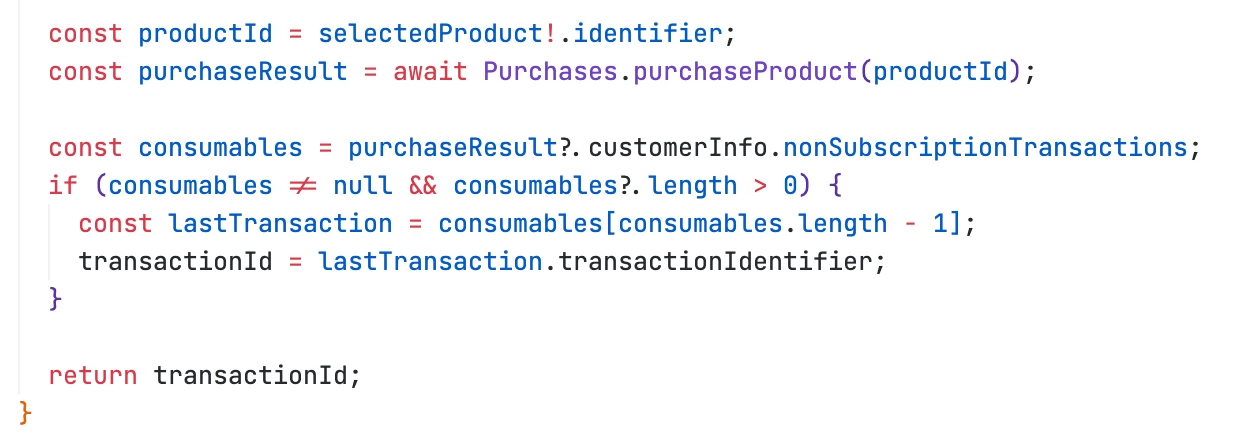So I am able to use RC to complete purchases of a product.
Here’s what happens once a user has purchased a product.
→ I grab their Revenue Cat ID, and extract their latest transactionIdentifier
→ An API request is made with this info to our backend server to process their order.
Here is a code snippet of how I am using the React-Native SDK to get their transaction Id.

On the backend I want to verify their Revenue Cat ID has indeed made the purchase based on the provided transactionIdentifier.
What’s the best way to do this?







